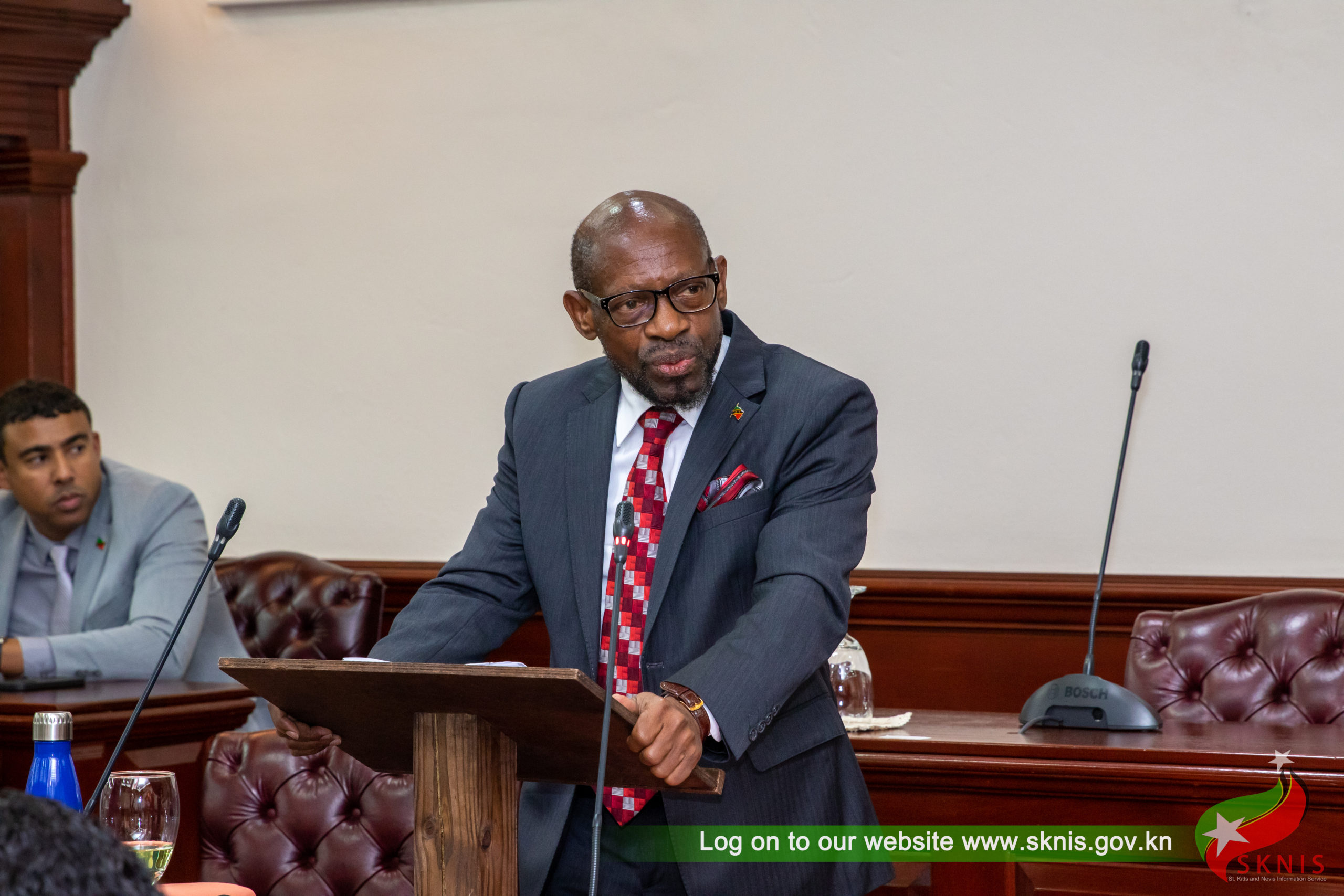Dr. Douglas Underscores the Historical Significance and International Implications of the 2025 Extradition Bill
The Extradition Bill of 2025, a landmark piece of legislation for Saint Kitts and Nevis, was the subject of rigorous debate in the Federal Parliament on May 22, 2025. Senior Minister and Minister of Foreign Affairs, the Right Honourable Dr. Denzil Douglas, a seasoned statesman with two decades of experience as a former prime minister, provided crucial insights into the bill’s profound implications for the nation’s justice system and its standing within the international community. Drawing upon his extensive experience navigating complex extradition cases during his tenure as prime minister, Dr. Douglas emphasized the bill’s importance in modernizing the Federation’s extradition procedures and aligning them with international best practices. He highlighted past challenges encountered under outdated colonial frameworks, underscoring the urgent need for clear and credible legal mechanisms to address extradition matters.
The Extradition Bill of 2025 represents a comprehensive overhaul of the Federation’s extradition framework. It signifies the nation’s commitment to upholding its obligations as a responsible member of the global community. The bill lays out clear procedures for handling extradition requests, both incoming and outgoing, ensuring that due process is followed and individual rights are protected. Dr. Douglas emphasized that the legislation demands evidence-based requests, promoting fairness and transparency in the extradition process. This departure from the ambiguities of the past strengthens the integrity of the Federation’s legal system and fosters confidence in its commitment to justice. By adhering to internationally recognized standards, the bill ensures Saint Kitts and Nevis is perceived as a reliable partner in international legal cooperation.
A key aspect of the bill is its emphasis on reciprocity. Dr. Douglas underscored that the Federation expects the same level of adherence to legal principles and due process from other countries when making extradition requests. This reciprocal approach strengthens the nation’s position in international legal proceedings and ensures that its citizens are afforded the same protections abroad as are offered within its own borders. The clear procedures outlined in the bill provide a robust framework for both requesting and responding to extradition requests, safeguarding against arbitrary actions and upholding the principles of fairness and justice. The bill thereby establishes a clear and consistent approach to extradition matters, strengthening the rule of law within the Federation.
Dr. Douglas further elaborated on the bill’s dual function – operating both domestically and internationally. Domestically, the bill safeguards the rights of individuals within Saint Kitts and Nevis, ensuring that extradition proceedings are conducted with due process and are based on credible evidence. Internationally, it strengthens the Federation’s position as a cooperative partner in global law enforcement efforts. This two-pronged approach is critical for maintaining both internal stability and external credibility. By meticulously outlining the legal procedures for extraditions, the bill minimizes the risk of politically motivated or arbitrary actions, bolstering public trust in the justice system.
The Extradition Bill of 2025 marks a significant step in Saint Kitts and Nevis’s legal development. It replaces outdated colonial frameworks with a modern, comprehensive system that aligns with international standards. The bill’s emphasis on due process, evidence-based requests, and reciprocal respect strengthens the rule of law and enhances the Federation’s reputation on the world stage. By embracing this modern approach to extradition, Saint Kitts and Nevis demonstrates its commitment to upholding justice, protecting individual rights, and contributing to a more just and cooperative international order.
The bill’s passage is not merely a legal formality; it is a testament to the Federation’s commitment to justice and its evolving role in international affairs. Dr. Douglas called upon all citizens to understand the profound impact of this legislation, both within the country and in its interactions with the wider world. The Extradition Bill of 2025 serves as a model for legal reform, promoting fairness, transparency, and accountability in the pursuit of justice within a globalized world. It represents a significant advancement in the legal landscape of Saint Kitts and Nevis and underscores the nation’s commitment to upholding the highest standards of legal integrity.
Share this content:












Post Comment